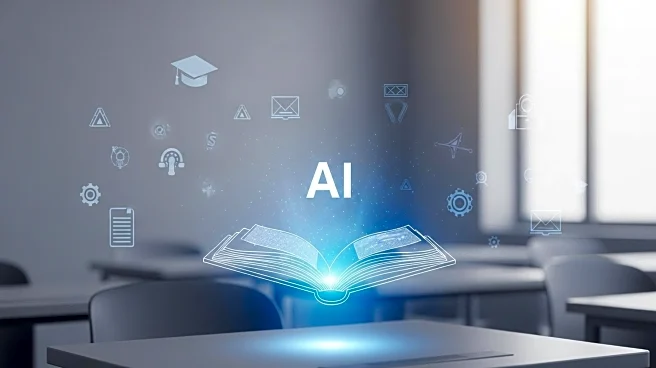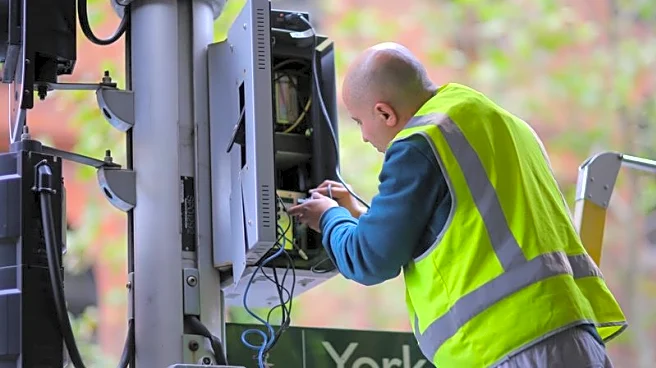What's Happening?
The integration of AI technologies, such as ChatGPT, into educational settings has become widespread, affecting both high school and college students. Since its release in November 2022, ChatGPT has been utilized extensively by students for writing essays and completing assignments, while educators have adopted AI for generating curricula. This shift has led to a transformation in the educational landscape, with AI becoming a normalized tool for productivity. However, this widespread adoption has also raised concerns about the erosion of critical thinking skills and the potential for academic dishonesty.
Why It's Important?
The pervasive use of AI in education has significant implications for the future of learning and teaching. While AI tools can enhance productivity, they also pose challenges to traditional educational practices and the development of critical thinking skills. The reliance on AI may lead to a decline in students' ability to engage deeply with material, potentially impacting their preparedness for real-world challenges. Additionally, educators face the challenge of adapting their teaching methods to incorporate AI while maintaining academic integrity.
What's Next?
Educational institutions may need to reconsider their approaches to teaching and learning in light of AI's impact. This could involve redesigning curricula to emphasize practical, skills-based education and critical thinking. The College Board's introduction of new AP courses in Business and Cybersecurity reflects a shift towards more practical education. Furthermore, there is a growing call for a 'slow-school' movement, advocating for a more deliberate and meaningful educational experience that balances AI use with traditional learning methods.
Beyond the Headlines
The integration of AI in education highlights broader cultural shifts towards increased productivity and efficiency. This trend may reflect societal pressures to perform and succeed, potentially at the expense of deeper learning and personal development. As AI continues to shape educational practices, it is crucial to address these cultural dynamics and ensure that technology serves to enhance, rather than undermine, the educational experience.










